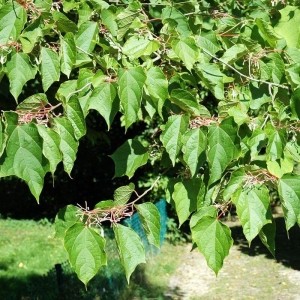Not a fad: Ten years after conception, Orgenetics still strong with organic vitamin offering

The Brea, CA-based company is one of the few vertically integrated, family-run organic supplier of nutritional ingredients. During the decade of its existence, Orgenetics partnered with India-based Green Chem, which owns, operates, and manages the organic farms near Bangalore that supplies the plants Orgenetics uses for its extracts, which are now in numerous products of over 150 brands.
When the company started in the late aughts, it seemed like a costly risk, but Maheshvari said that the company has only grown, especially with today’s increased demand for transparency and favorable views of vertically integrated companies.
From pharma to nutraceuticals
In fact, being vertically integrated was at the foundation of Orgenetics’ conception, Maheshvari explained. It was founded by his father, Dr. Jit Maheshvari, back in 2007. A chemist who worked in the pharmaceutical field who saw that “this world can’t be just about identifying a disease and curing it,” Maheshvari said that his father was drawn to the nutraceutical space.
But once there, Maheshvari senior realized that standards weren’t as high as they were in pharmaceuticals. “There were a lot of cheaply made ingredients and cheaply made products,” his son said. “There was not a lot of oversight of regulation, so it was more of a wild west where anything and everything could sell.”
In 2004, Dr. Maheshvari decided he wanted to fill the market void, establishing Orgenetics and partnering with Green Chem, owned by his long-time friend Rajendran Ramaswamy, to grow the appropriate plants. Three years later, after the first harvest, Orgenetics launched its first product, Orgen-C vitamin C.

Without sharing numbers, Saumil Maheshvari said that the company has "grown exponentially", thanks to general demand for organic products. Ingredients under the Orgen brand, which entails plant-derived vitamins, is the company’s greatest source of revenue. “Some of the applications that we’re seeing, we couldn’t even have imagined,” Saumil Maheshvari said. “Smoothies, waters, nutritional bars, gummies—with our Orgen brand ingredients, they’re very versatile.”
Learning from the locals
The benefits of vertical integration that Orgentics experienced wasn’t just about transparency and quality—they learned some botanical wisdom from the farm community which the company then translated to two new products: AimSlim and Alanzeebium.
“[These] were added just a few years back, and these functional formulations are rooted in the history of villages near our organic farm,” Maheshvari said.
For example, the Achryanthes aspera plant’s seeds used in the appetite suppressant AimSlim is a staple in the breakfasts of farmers around southern India. “When we saw [some farmers] use the seeds in their morning breakfast, we were curious what the reason was—we thought it could’ve been just for taste purposes, but it turns out that it was for appetite suppression,” Maheshvari said.
“These farmers have been using it for generations to stave off hunger while they work in the fields throughout the day,” he added. Orgenetics then analyzed the seeds, found a high level of saponins, and formulated the ingredient.
Same story goes for Alanzeebium, which the company formulates for women’s sexual health made out of Jujube extract and Alangium salvifolium, the tree of which Maheshvari said “were being passed down from mother to daughter in these farming villages during marriage ceremonies."
“‘We’re very happy that we played a pivotal role in creating space for USDA organic vitamins,” Maheshvari added. “We’re continuing with this push…to make sure that other industries out there which do use vitamins and minerals to [switch] from synthetic to organic and plant-based nutrition.”
















